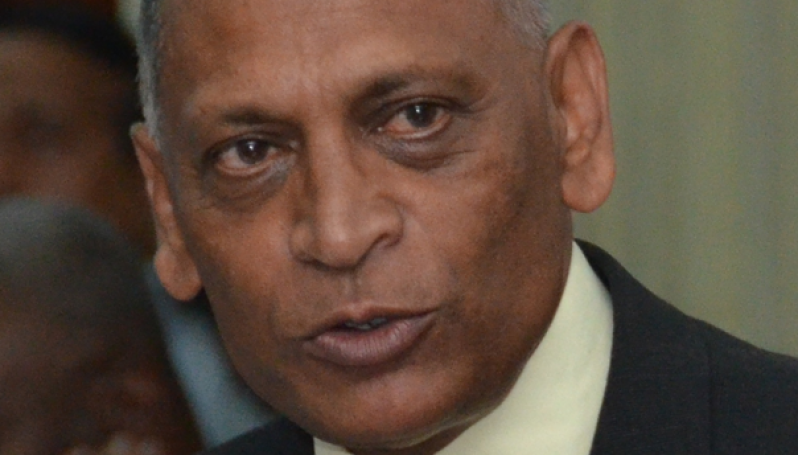– says GSA curriculum review included
MINISTER of Agriculture, Dr. Leslie Ramsammy emphasised in the National Assembly, last week, that, notwithstanding the importance and benefits of the agrochemicals industry to increase food security, the aspects of food safety, human health and environment protection are all high priorities.He explained that Guyana, through international chemical agreements and support, will be disposing of six tons of obsolete pesticides, an achievement which will be a major objective set out under the Dubai Declaration on Strategic Approach in International Chemical Management (SAICM) 2020 Goals.
The Dubai Declaration was initiated in 2006 when governments, intergovernmental and non-governmental organisations gathered in Dubai during an International Conference on Chemical Management.
“During that session, a process of negotiation was culminated among the leaders, all within the framework of the Preparatory Committee for the Development of a Strategic Approach to International Chemical Management,” the minister reported.
He said: “If we are serious about making chemicals safer for humans and the planet, we must first address risk assessments of chemicals…these must carry provisions for national centres, especially in the developed world, to train not only staff, but farmers in chemical safety, including how to effectively deal with spills, storage and accidents.”
CRITICAL ELEMENT
With regard to sustainable environment, Dr Ramsammy noted that development of fisheries policy is a critical element, especially to promote marine fishing.
Two significant initiatives the ministry hopes to conclude in 2014 are to:
* obtain Marine Stewardship Council (MSC) Certification, a sustainable fishing practice certificate. The MSC will monitor marine stock level and identify the carry capacity of the fleet, so as not to overfish. Added benefits from MSC certification include improved marketability of products from the industry and increased traceability of seabob vessels and to
* establish a Vessel Monitoring System (VMS). In 2013, twenty-one VMS units were installed on seabob trawlers. The remaining ninety-six VMS units will be installed in 2014. Additionally, by-catch reduction devices (BRDs) have been installed on most trawler vessels.
He stressed that, without human resources, agriculture will be stalled while adding that the Guyana School of Agriculture will continue to take on a lead role in advancing human resource development.
“Shortly, the school will be collaborating with the University of Guyana which will see graduates in Diploma in Agriculture only spending two years to complete a Bachelor’s Degree,” Ramsammy disclosed.
He revealed that the new courses offered at the institute include agro-processing; repair and maintenance of small equipment; urban agricultural techniques and product development and training for rural communities.
The minister concluded by assuring that the school has commenced the review of its curriculum and will continue along that path to include online training to offer more specific, relevant and demand-driven careers in the sector.
He said allocations have been made in the 2014 Budget for various industries, aimed at advancing and developing the sector.
Agriculture in Guyana accounts for more than 33 percent of total employment and 25 percent of Gross Domestic Product (GDP).
(By Ravin Singh )



.jpg)








